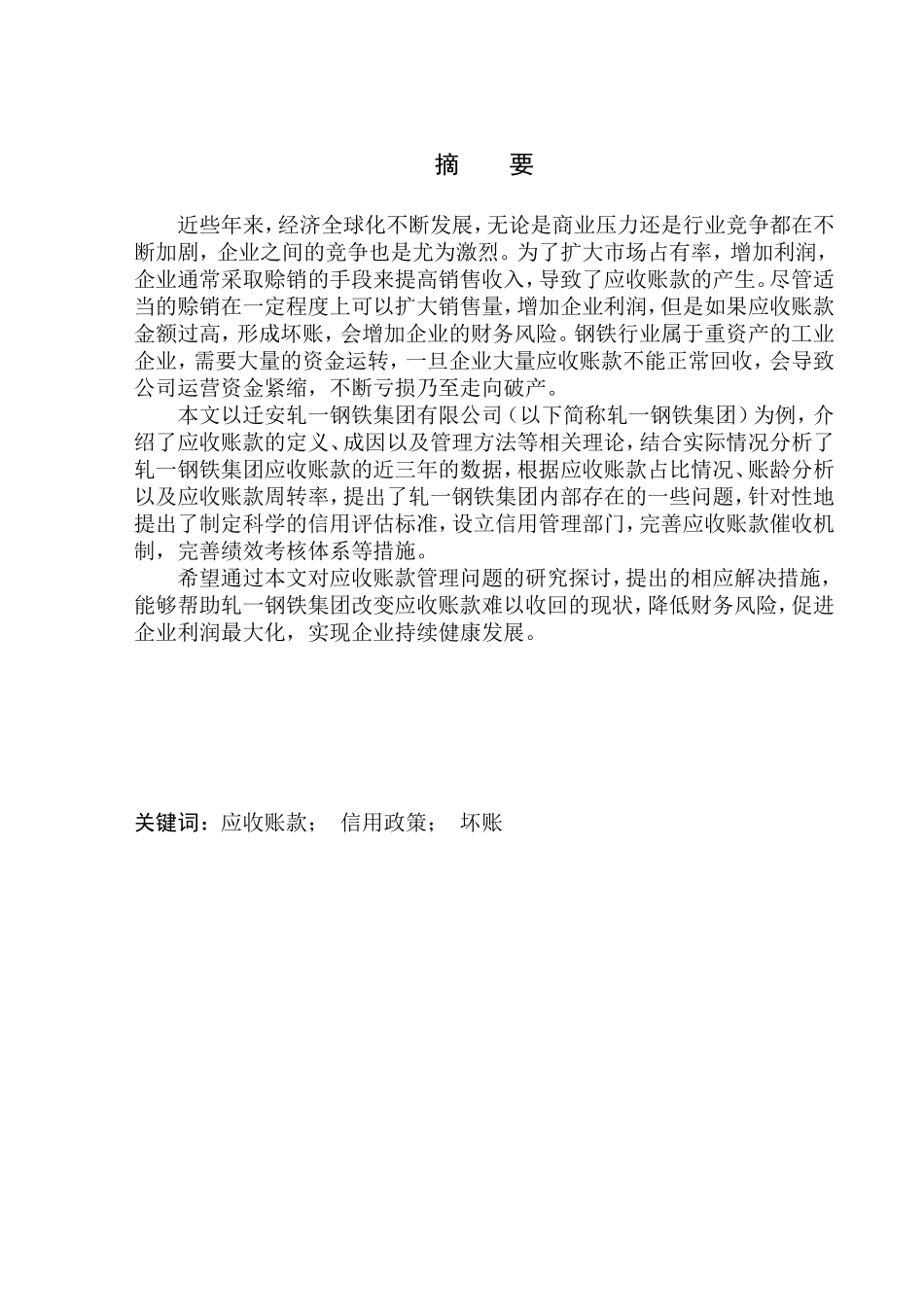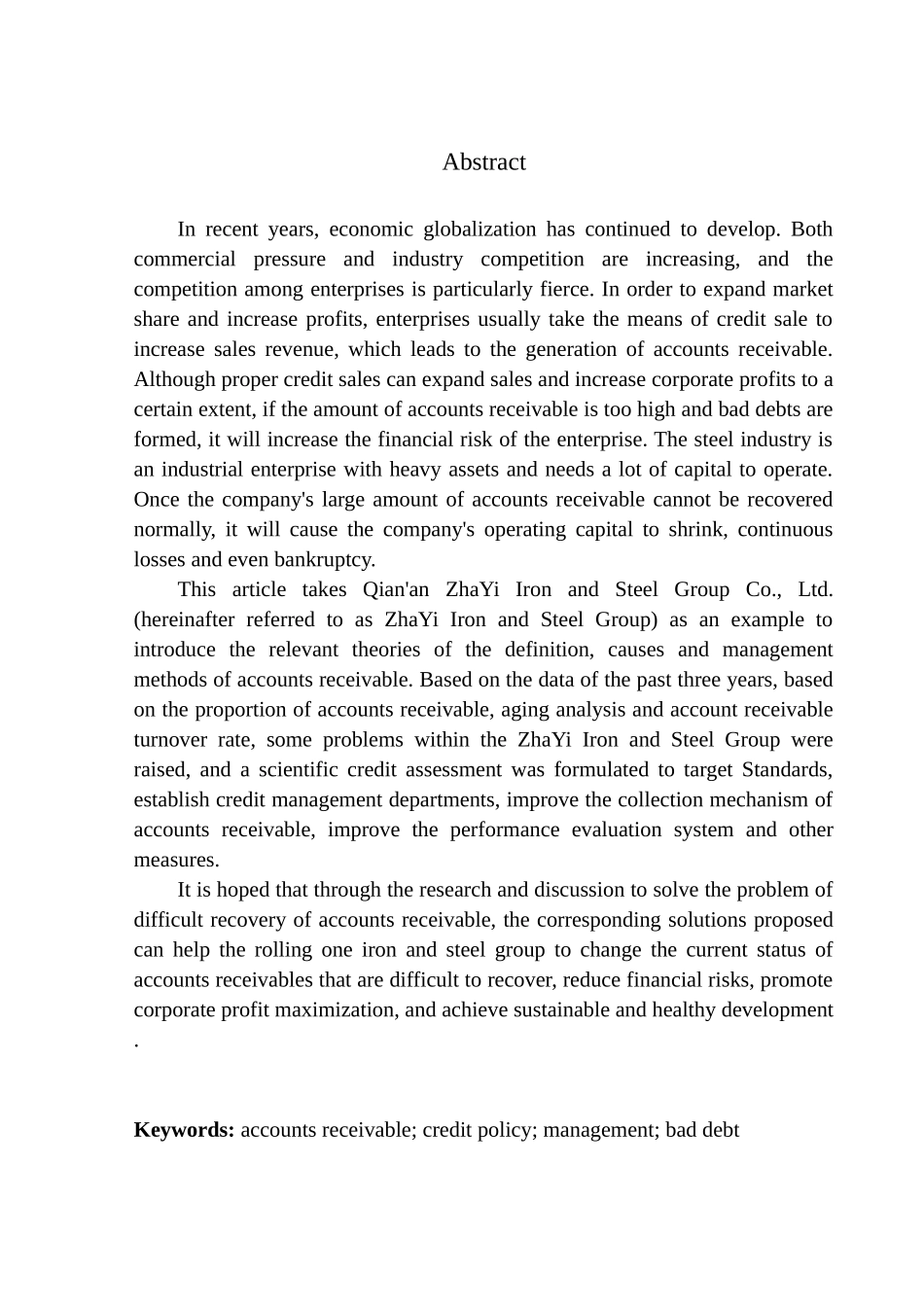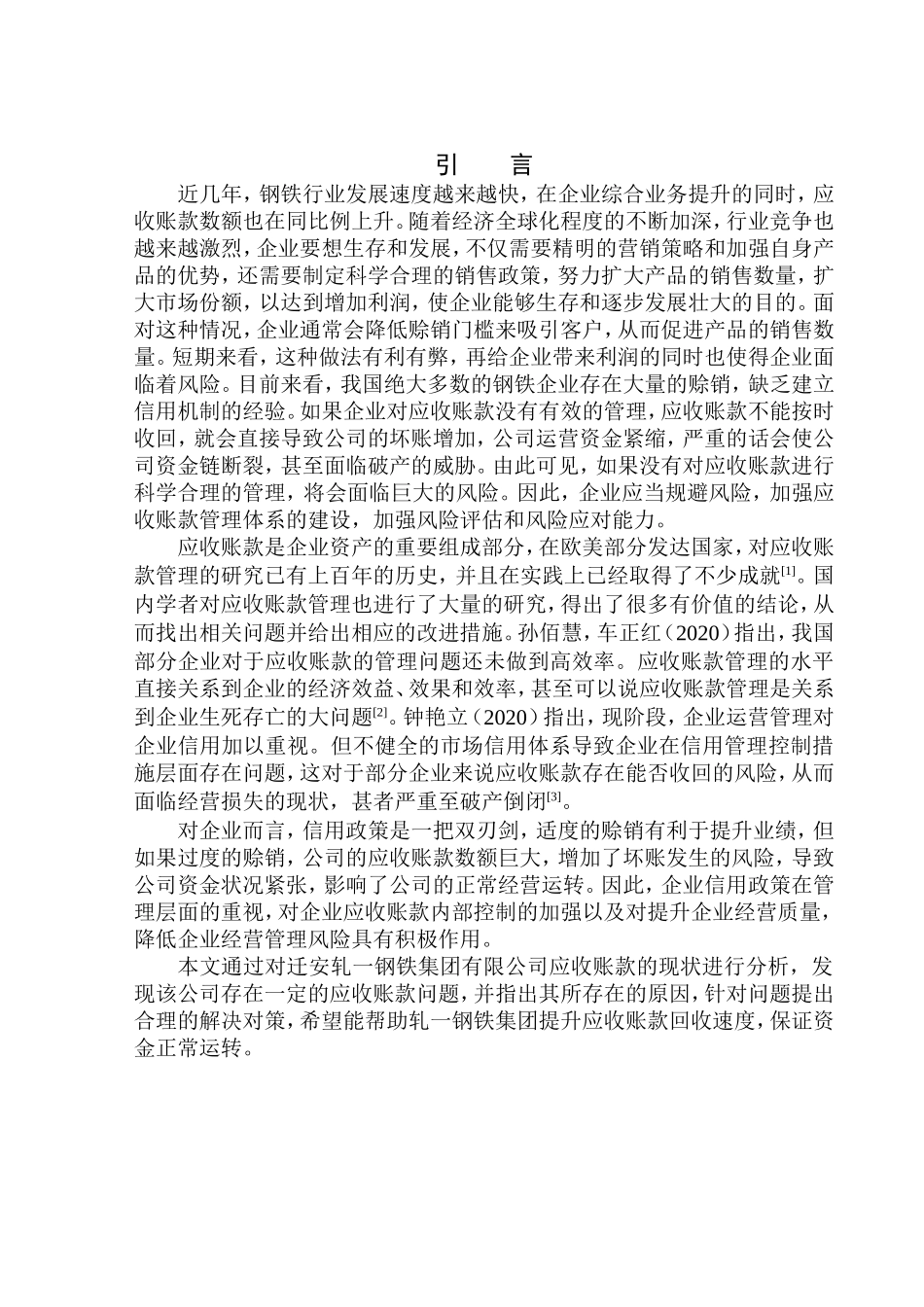摘 要近些年来,经济全球化不断发展,无论是商业压力还是行业竞争都在不断加剧,企业之间的竞争也是尤为激烈。为了扩大市场占有率,增加利润,企业通常采取赊销的手段来提高销售收入,导致了应收账款的产生。尽管适当的赊销在一定程度上可以扩大销售量,增加企业利润,但是如果应收账款金额过高,形成坏账,会增加企业的财务风险。钢铁行业属于重资产的工业企业,需要大量的资金运转,一旦企业大量应收账款不能正常回收,会导致公司运营资金紧缩,不断亏损乃至走向破产。本文以迁安轧一钢铁集团有限公司(以下简称轧一钢铁集团)为例,介绍了应收账款的定义、成因以及管理方法等相关理论,结合实际情况分析了轧一钢铁集团应收账款的近三年的数据,根据应收账款占比情况、账龄分析以及应收账款周转率,提出了轧一钢铁集团内部存在的一些问题,针对性地提出了制定科学的信用评估标准,设立信用管理部门,完善应收账款催收机制,完善绩效考核体系等措施。希望通过本文对应收账款管理问题的研究探讨,提出的相应解决措施,能够帮助轧一钢铁集团改变应收账款难以收回的现状,降低财务风险,促进企业利润最大化,实现企业持续健康发展。关键词:应收账款; 信用政策; 坏账AbstractIn recent years, economic globalization has continued to develop. Both commercial pressure and industry competition are increasing, and the competition among enterprises is particularly fierce. In order to expand market share and increase profits, enterprises usually take the means of credit sale to increase sales revenue, which leads to the generation of accounts receivable. Although proper credit sales can expand sales and increase corporate profits to a certain extent, if the amount of accounts receivable is too high and bad debts are formed, it will increase the financial risk of the enterprise. The steel industry is an industrial enterprise with heavy assets and needs a lot of capital to operate. Once the company's large amount of accounts receivable cannot be recovered normally, it will cause the company's operating capital to shrink, continuous...












